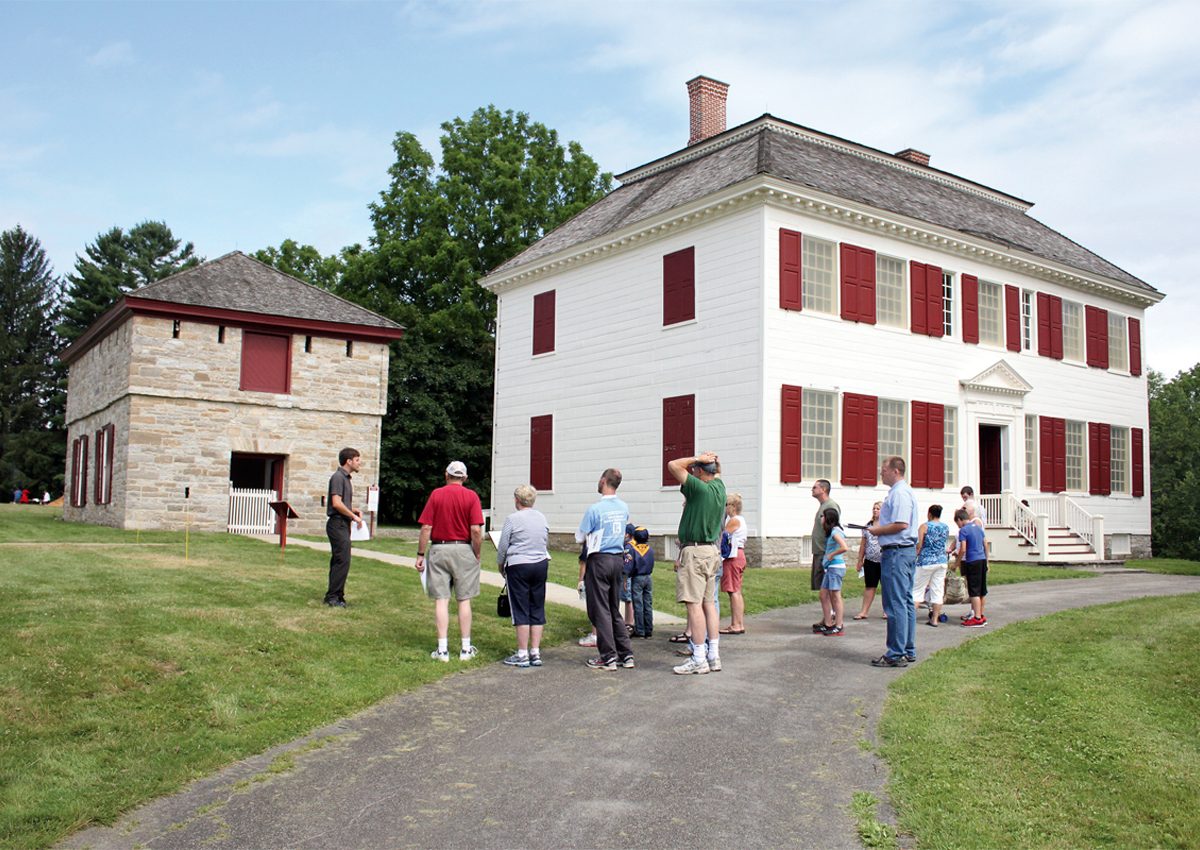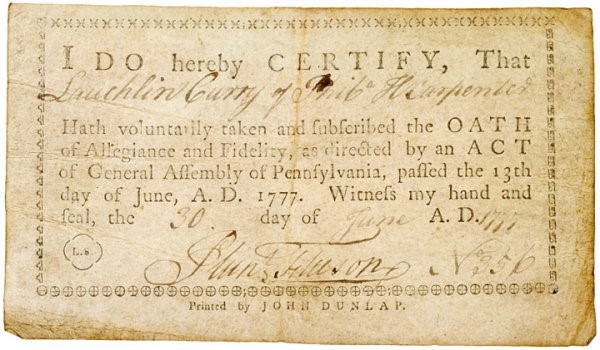Writing to White on August 29, Johnson noted that when he informed the rebel leaders that White was gone “they dispersed all their men to the amount of about 500 — and sent expresses up and down the country to stop all that were coming to their assistance, as well as the cannon they had sent for to Schenectada;” Johnson, clearly working hard to maintain the uneasy truce between himself and the rebels also flatly stated to White “ I would not have you, upon any account whatever, to return now, as I assured them you would not.”
Now having no other option than to go to Canada, White reflected upon the mixture of neighborhood grudges mixed up with politics that had made him an outcast. It is recorded that as he prepared to leave, White said “Is it not a pity that I, being a man of good estate, must go and leave the same for the sake of these damned Fondas?” Unfortunately for White, even though he was guided by two Mohawk Indians, he was captured at Jessup’s Landing (modern Corinth, NY) sometime between the end of August and the beginning of September and jailed in Albany.
With White out of the way, on September 7, the Tryon County Committee of Safety resolved that White “has proved Sufficiently himself unworthy of his Office and an enemy in general and in particular to our American Cause.” They then held new elections and committee member John Frey was elected the new Sheriff of Tryon County.
On October 3, White’s wife, Elizabeth , appeared before the New York City Committee of Safety, stating that her husband had currently been jailed in Albany for over five weeks and asking “That the said Alexander White, her truly unfortunate husband, may be discharged by the order of this honourable Board, upon his parole of honour not to act or do any thing that can give the least offence; or, otherwise, that this honourable Board will he pleased to refer whatever chargemay be against her husband to the Committee at Albany, that he may, in the most convenient time, be heard thereon, in order to obtain his enlargement; or that this honourable Board will use such measures for the relief of the Petitioner and her husband, as in their humanity and tender consideration shall be thought expedient.” It is evident that Elizabeth White didn’t believe she could a fair hearing from the Tryon Committee, and with the high level of animosity that now existed between the former sheriff and the people of Tryon County, she was absolutely right.
BELOW: Johnson Hall, where White first took refuge after escaping the rebel mob on June 20. Built by Sir William Johnson in 1763 and inherited by hisSon John in 1774. It is a large two-story building with a shingled roof. It ispainted white with a central doorway. two windows sit on each side of the doorway, and five windows spaced evenly across the second floor. The door and window shutters are dark red. A grey stone blockhouse sits on each side of the main house.

It appears that Elizabeth White’s petition was looked upon with favor by the other committees, and that White was freed at some point “upon his parole of honour not to act or do any thing that can give the least offence”, because he was then rearrested by the Tryon County Committee on May 28, 1776, and once again jailed in Albany. It seems that the committee felt White had violated his parole, because he had been taken up “as a suspected, non-associated, and dangerous person” and would be undergoing a hearing to determine “if he is guilty of an infraction of his parole.” By this time, the 3rd New Jersey Regiment under Colonel Elias Dayton was in Johnstown, and it appears that the Tryon Committee hoped they could pass off their “problem child” to the military to deal with. They ordered White “brought to Colonel Dayton at Johnstown for close confinement and his further directions.” Col. Dayton had far more important things to deal with than a Loyalist former sheriff and at some point, sent White back down to prison in Albany.
After over another year in jail, White tried addressing the Tryon Committee himself on December 7, 1777, asking for release and permission for himself and his wife to go to Canada. Not surprisingly, his address fell upon deaf ears. In 1778, the New York legislature ordered all county committees of safety to dissolve as there was now a state supervised Committee for Detecting & Defeating Conspiracies. Tryon County resisted the order for as long as possible, as they felt the state commission would be too impartial. By April however, having received a direct order from the New York legislature to disband, the committee was dissolved. White’s fate now fell under the control of the new state committee, and on August 4, he appealed to them for release. It appears the new committee was willing to give White a chance to remain in the Mohawk Valley, because they offered him the opportunity to sign the oath of allegiance to the United States. White remained true to his convictions, however, and refused to acknowledge the new country. Luckily for White, there was a militia officer who had been captured during a British raid in the Hudson River Valley, and the committee was willing to trade White for him.
While White was initially released on his own recognizance, it seems Governor Clinton feared White might make a run for it, thereby canceling the exchange. So, on Clinton’s orders, White was arrested for a final time on August 14. Final arrangements were made over the next few days and on August 28, Alexander White was taken to the British lines around New York City and exchanged for Lieutenant Cornelius Van Tassel of the Westchester County Militia. Alexander White, the first, last and certainly most detested Royal Sheriff of Tryon County was finally gone for good.White and his wife eventually went to Canada and White did service with various Loyalist units there. He was granted a Captain’s pension from 1783 to 1789. The end of the war did not bring about the end of the animosity that people in the Mohawk Valley still harbored towards White. On February 8, 1783, White was one of the final 31 people that New York State banned from returning to the United States. White died in exile in Canada on June 7, 1791.
BELOW: A certification given to prove that the person named has voluntarily signed the oath of allegiance to theUnited States. This one comes from Pennsylvania, but New York would have issued similar certificatesto all its residents who signed. White refused to sign the oath.

